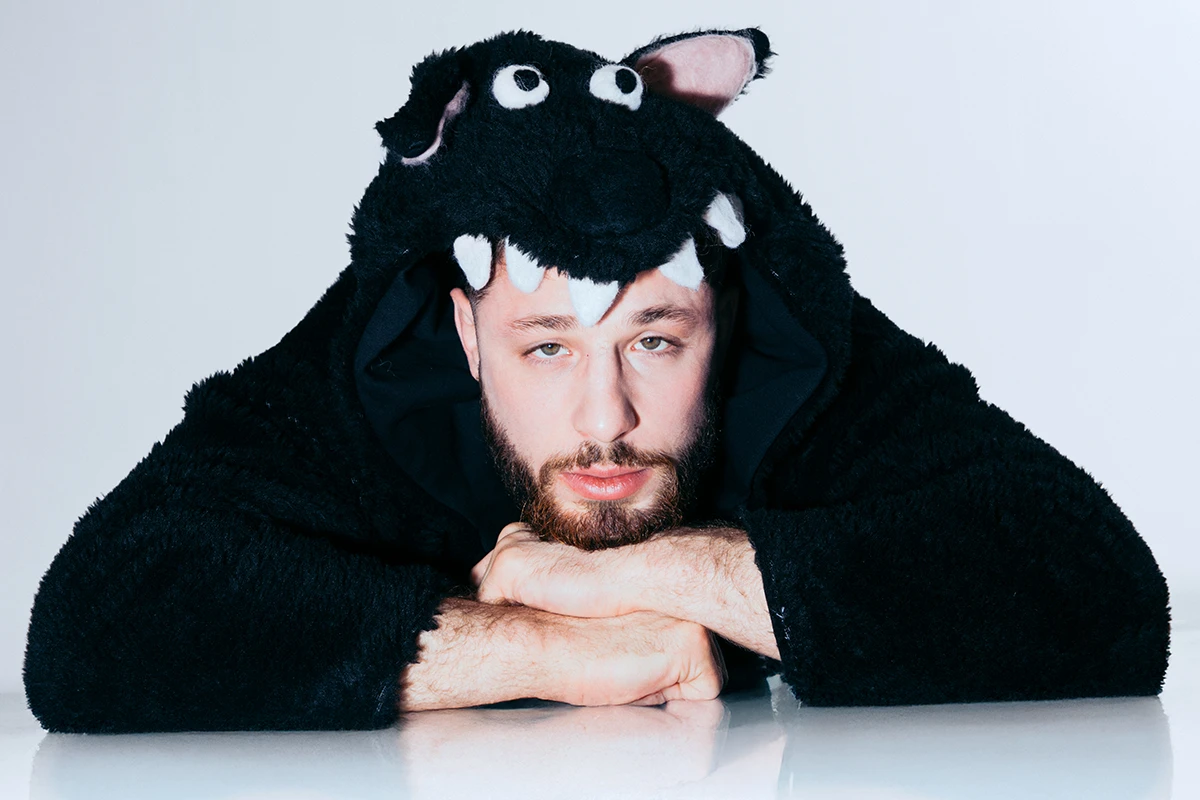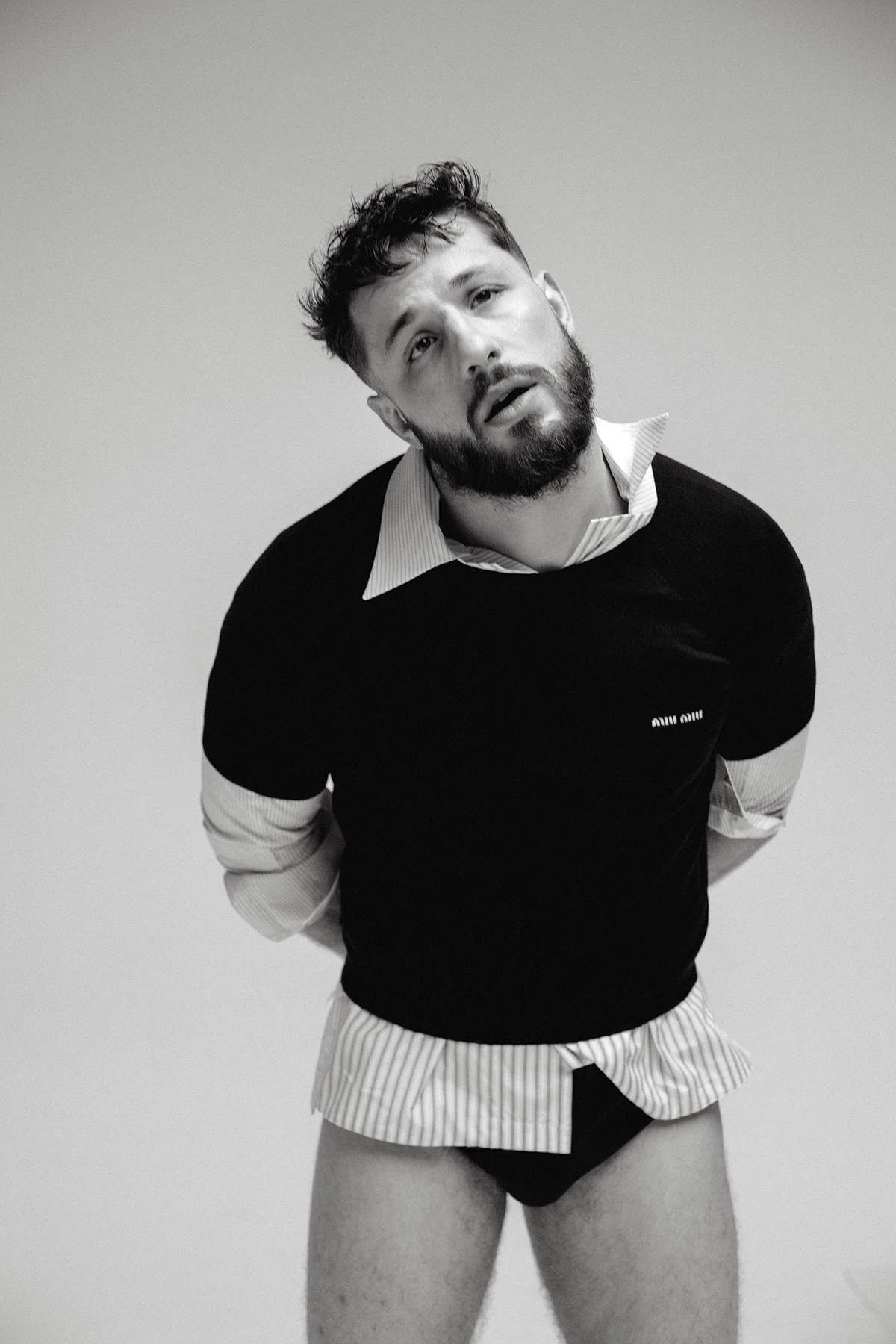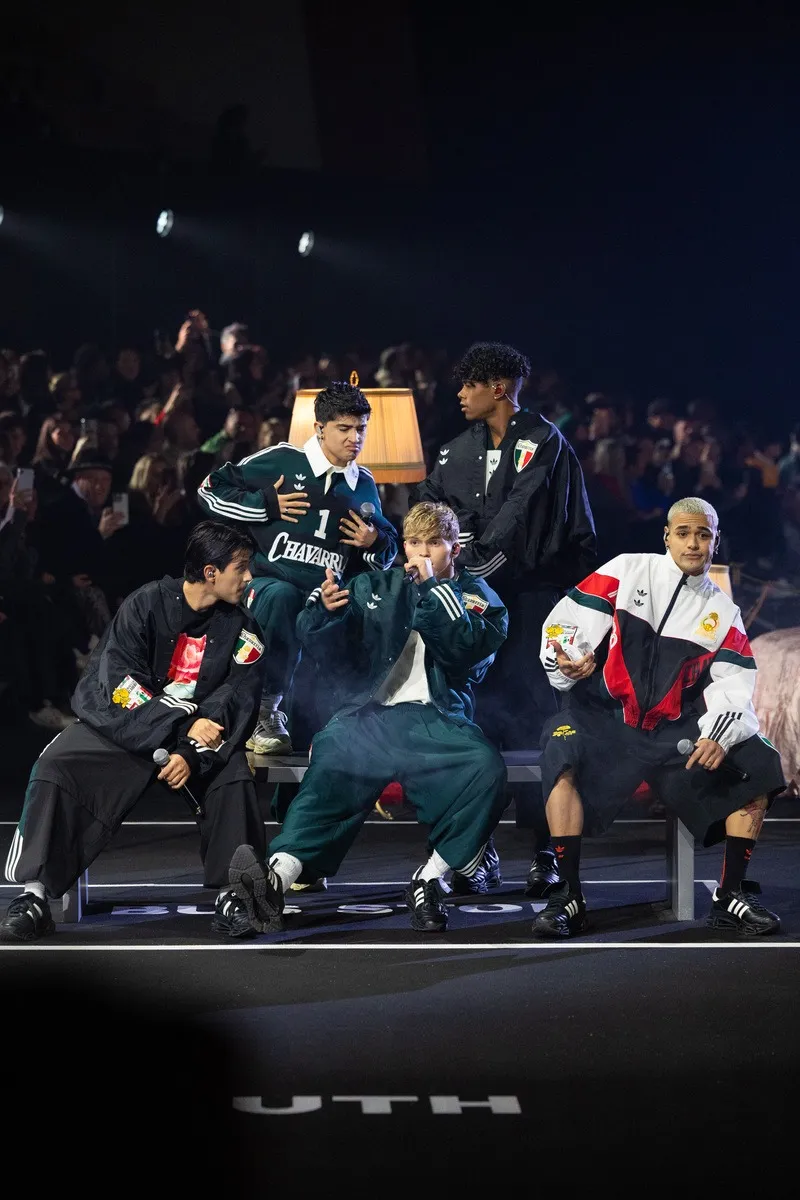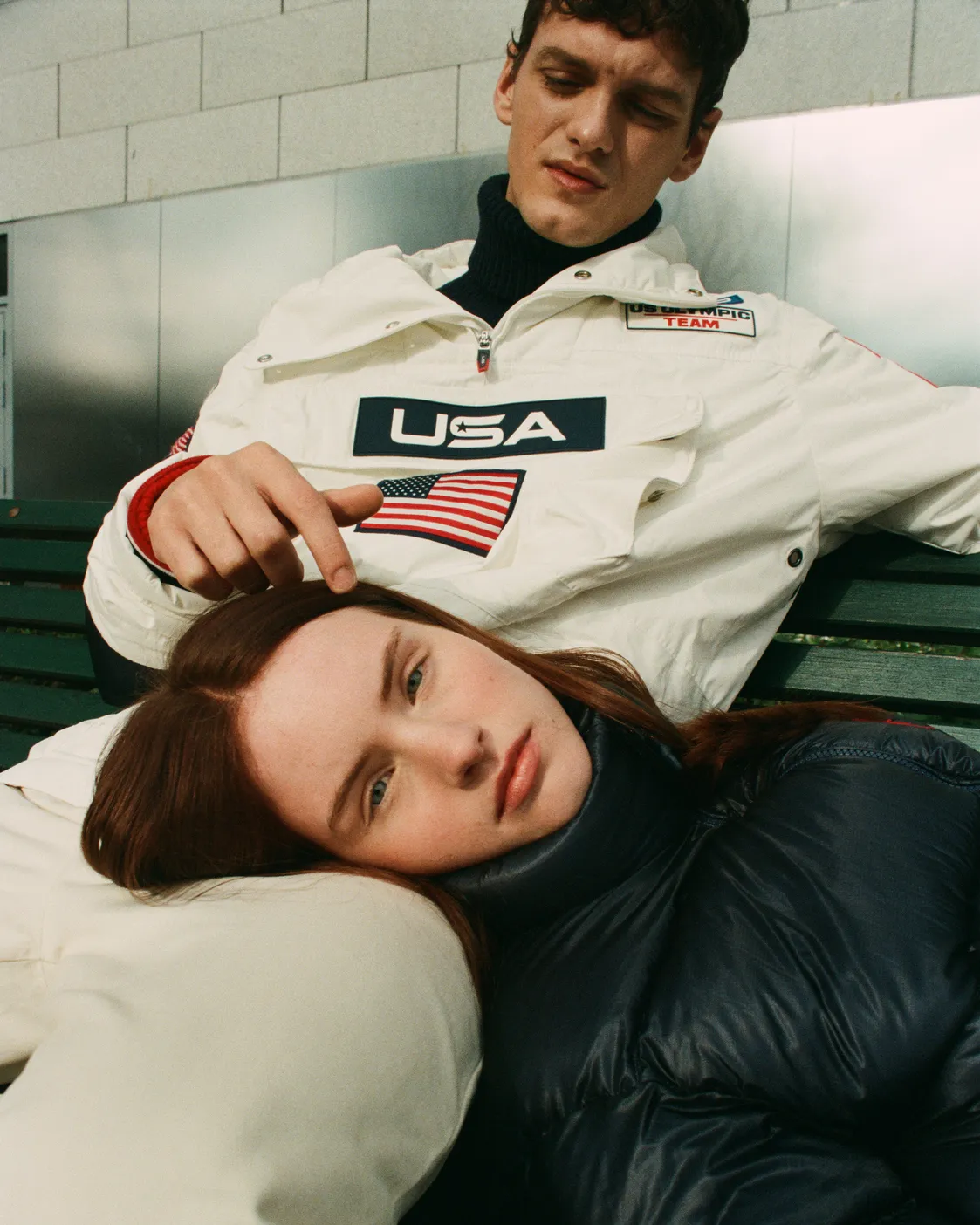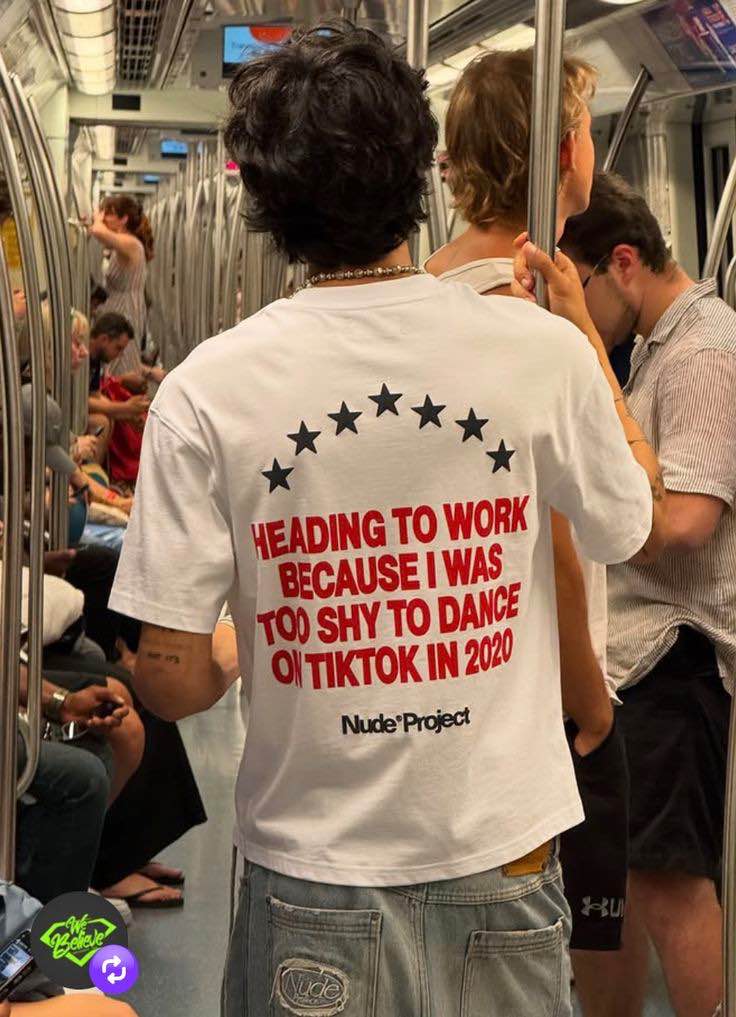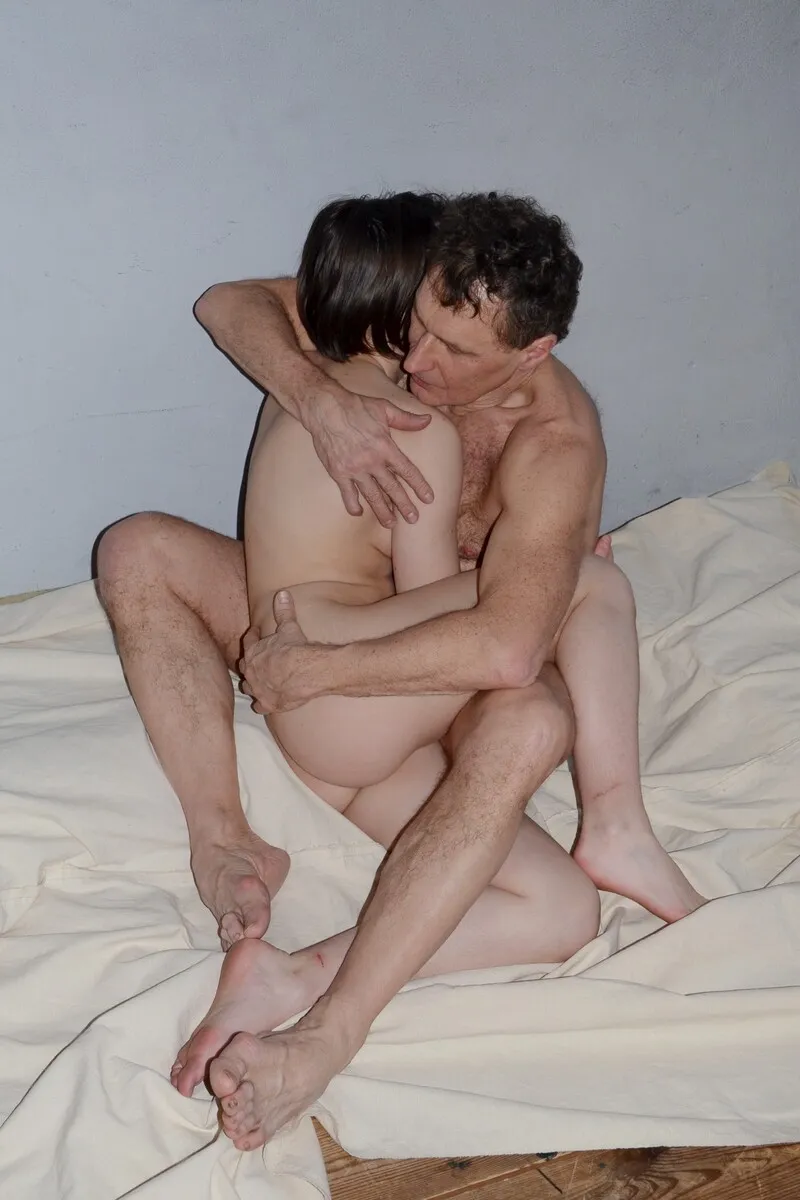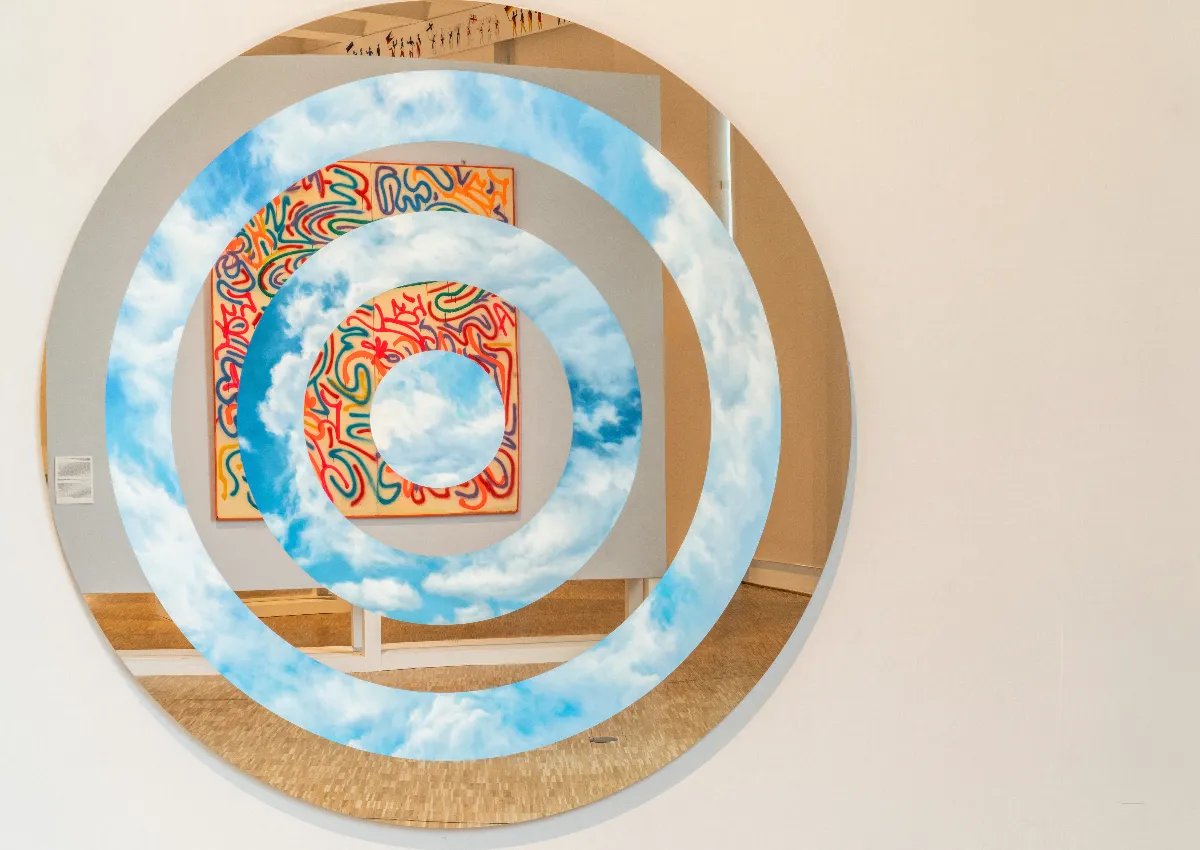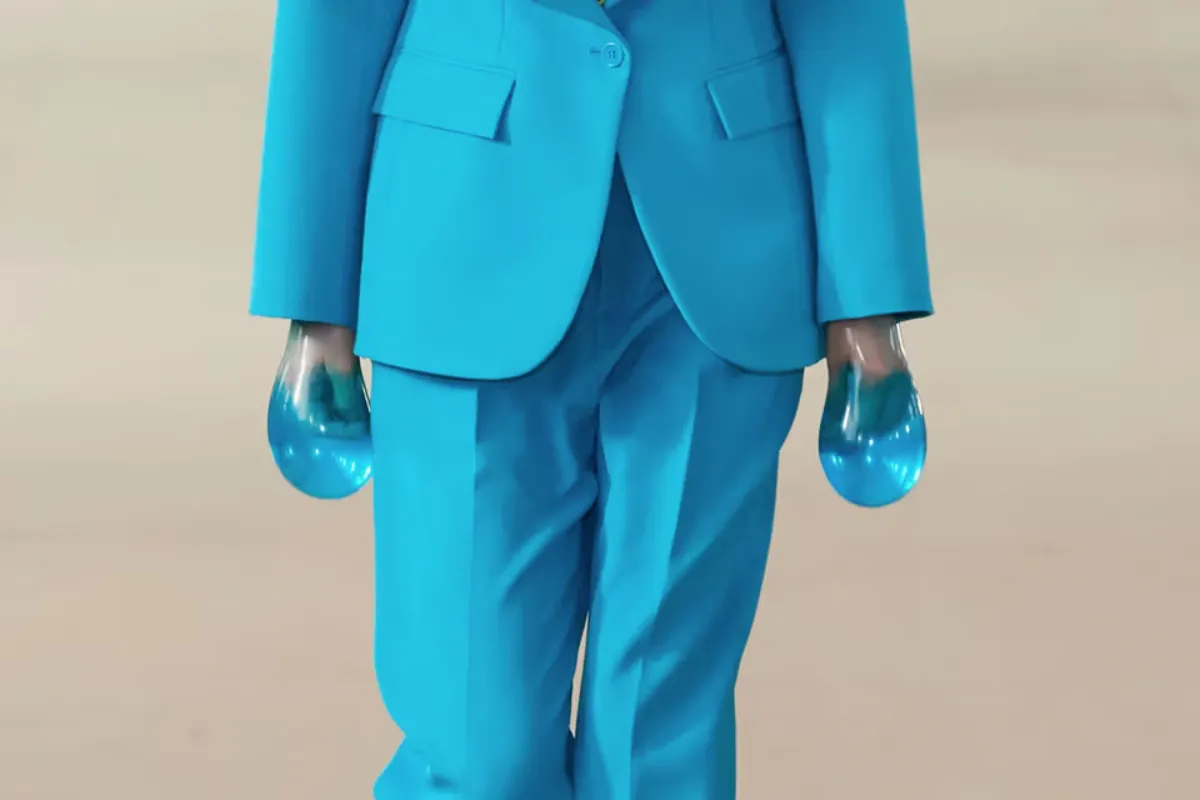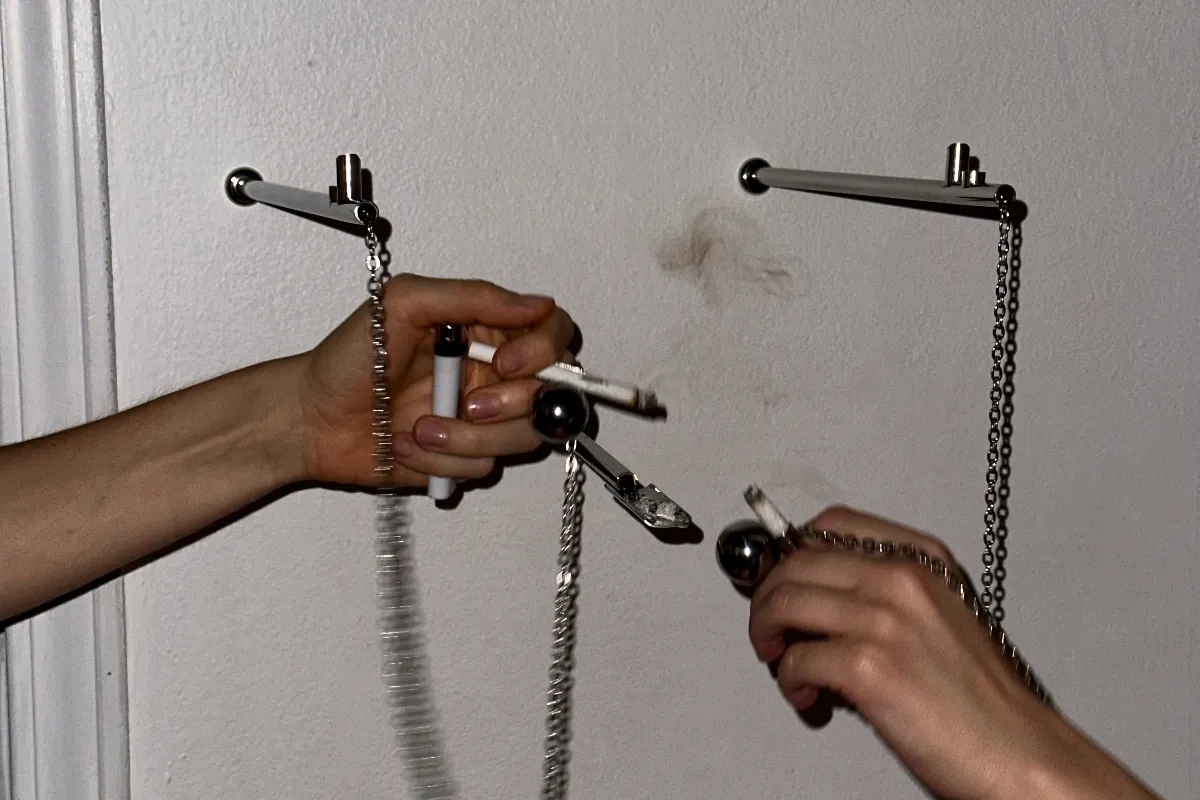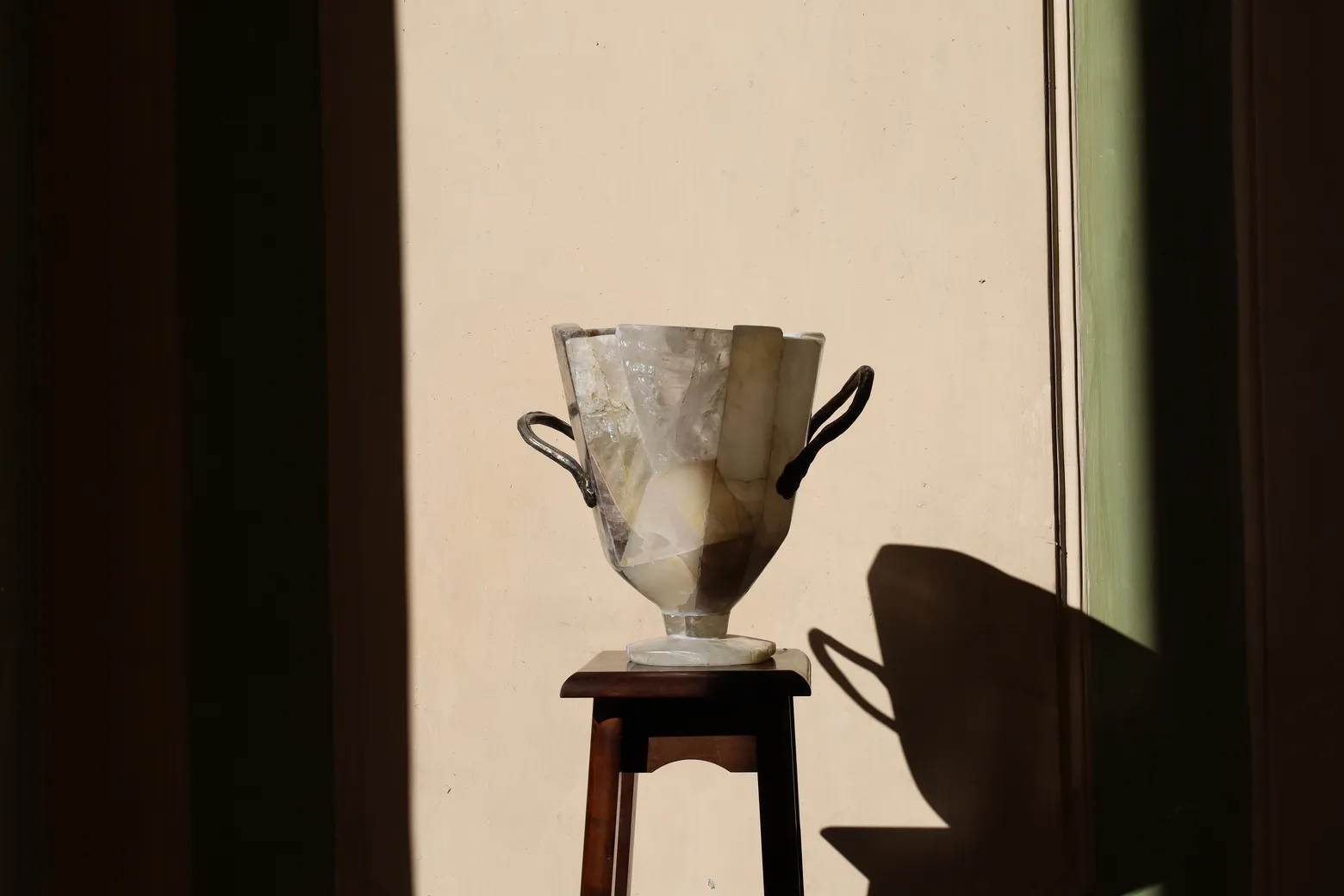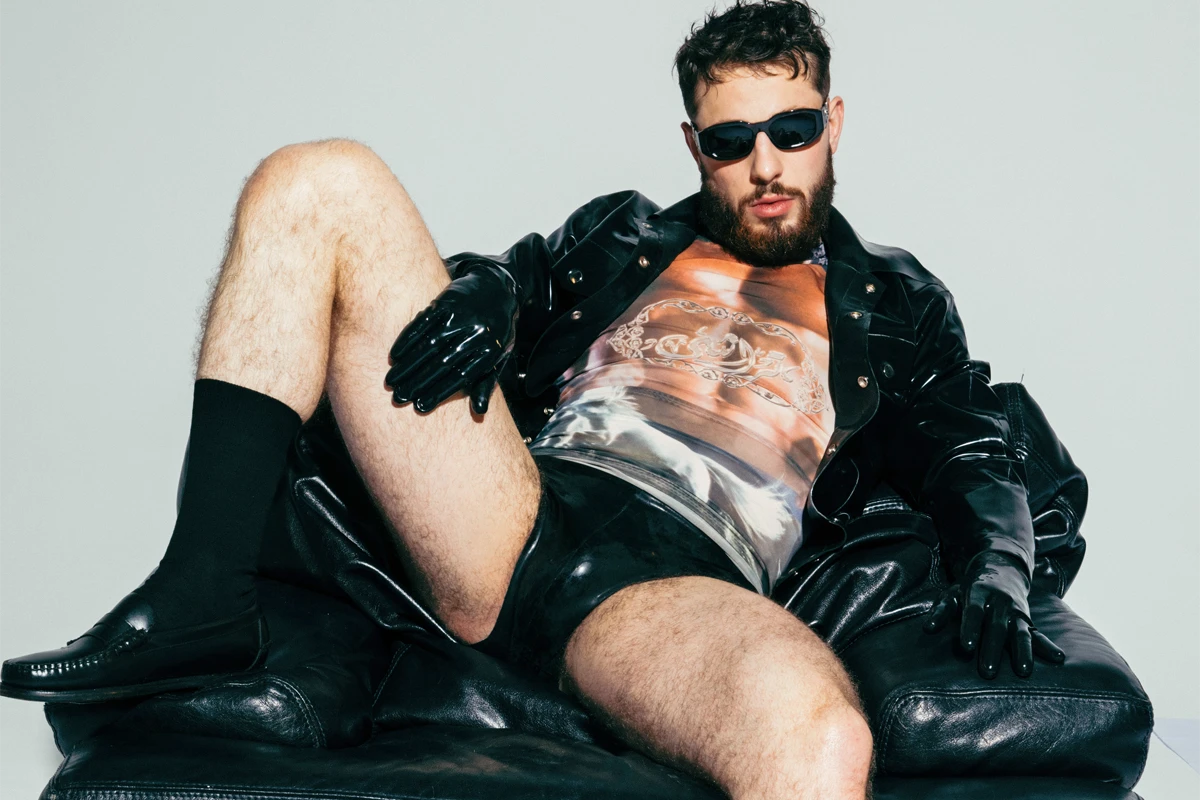
Mathis Chevalier – leave it to an MMA fighter to destroy toxic masculinity
As a teenager, Mathis Chevalier had trouble fitting into the school system. MMA helped him with his anger and frustration, until he decided it was time to deconstruct machismo
Can a straight guy be considered queer? Mathis Chevalier
The question ventures into murky and complex territories. There’s one thing that supports an affirmative answer. Queer people love him. He earned it. As a model, he frequently poses nude. Full-frontal. Safe to say he’s not shy and likes to flaunt his dick and buns. It’s not just muscles and vanity. Mathis Chevalier, born in September 1998, has an intention.
He fights against chauvinistic stereotypes, despite coming from a professional background that could have soaked him into them. His breakout acting role in Marc Martin’s Mon RCS led him into Trois Couleurs’ 2023 list of young actors that are shaping the future of French cinema. In the film, he plays a white cop who falls in love with a trans woman of North African descent (portrayed by non-binary artist Othmane).
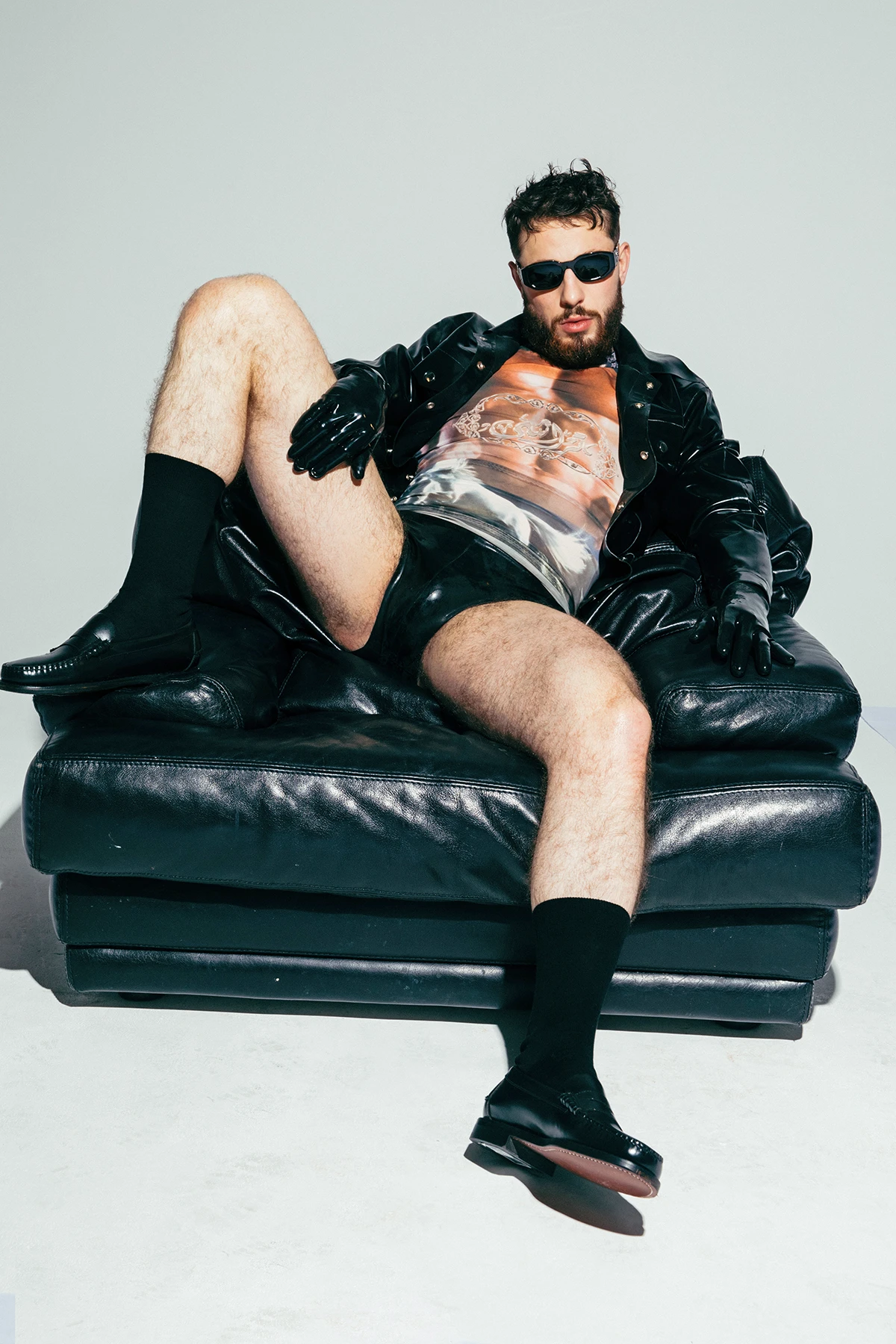
Mathis Chevalier’s Fight for Freedom: From School-System Misfit to European MMA Champion Breaking Societal Chains
“What shaped me was my conflict with the educational methods imposed by the system and its standards. We’re expected to conform to them. I was never able to do that. It was torture. Too rigid, too logical. I switched schools many times and I dropped out very early on. When you don’t fit into the system, when you don’t think like others, you start to believe there’s something wrong with you”.
An interest in arts clicked – specifically movies that “felt a bit outside the rules”. The path towards it wasn’t straightforward. “It’s not something to be proud of, but I did some foolish things as a teenager. Little mischiefs. Small thefts with friends, things like that. That’s when I got into trouble with the police, until a social worker helped me by enrolling me in a reintegration program through an association. I started working at a sports club”. That’s when he started practicing MMA.
Frustration and aggressiveness found a relief valve. “Fighting helped me. It allowed me to channel my anger. I started MMA ten years ago, when things were very different from how they are now. Sometimes you had to sign a document saying that the organizers weren’t responsible for any injuries. Some fights felt more like street brawls than sports competitions”. Not exactly what parents dream for their child. “For them, the violence of it all was inconceivable. They didn’t understand how I could step into a cage and break someone’s jaw. Then they slowly accepted it”, Mathis Chevalier recalls. It may have helped that he became a champion: in 2019, he was the golden boy at the Junior European Championships. Other medals followed.
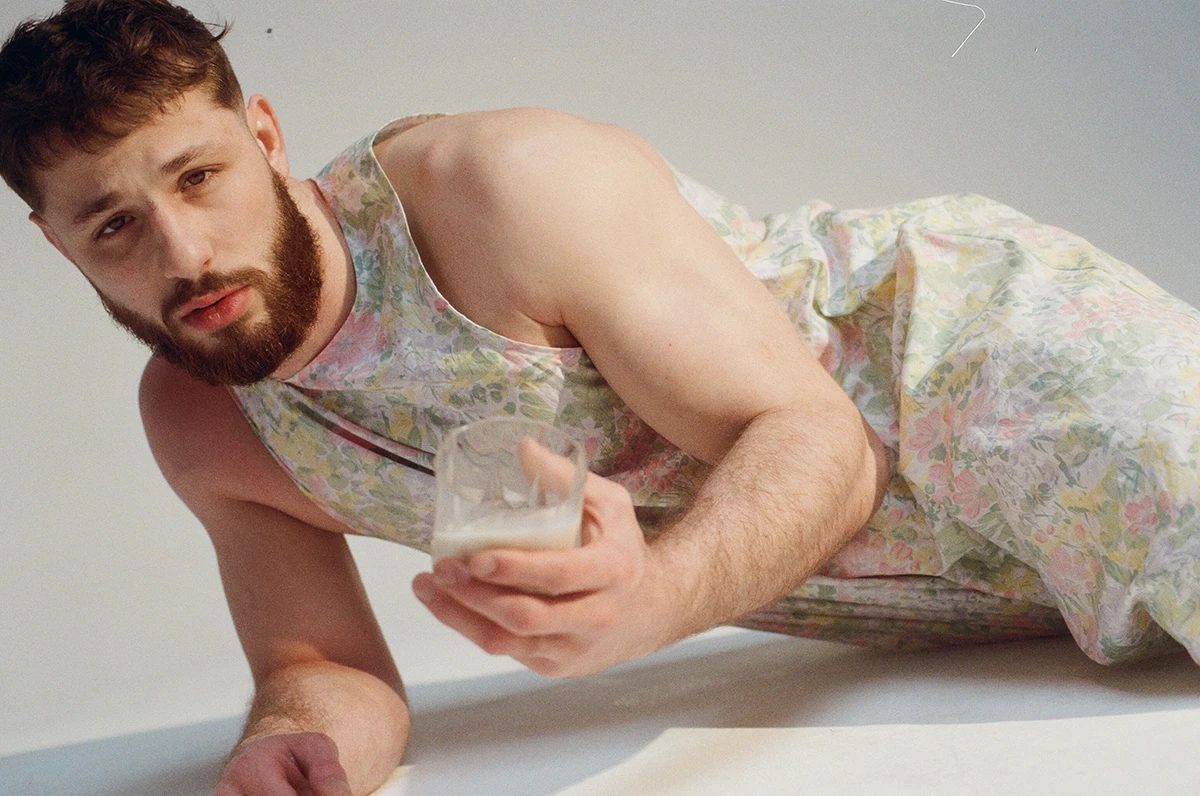
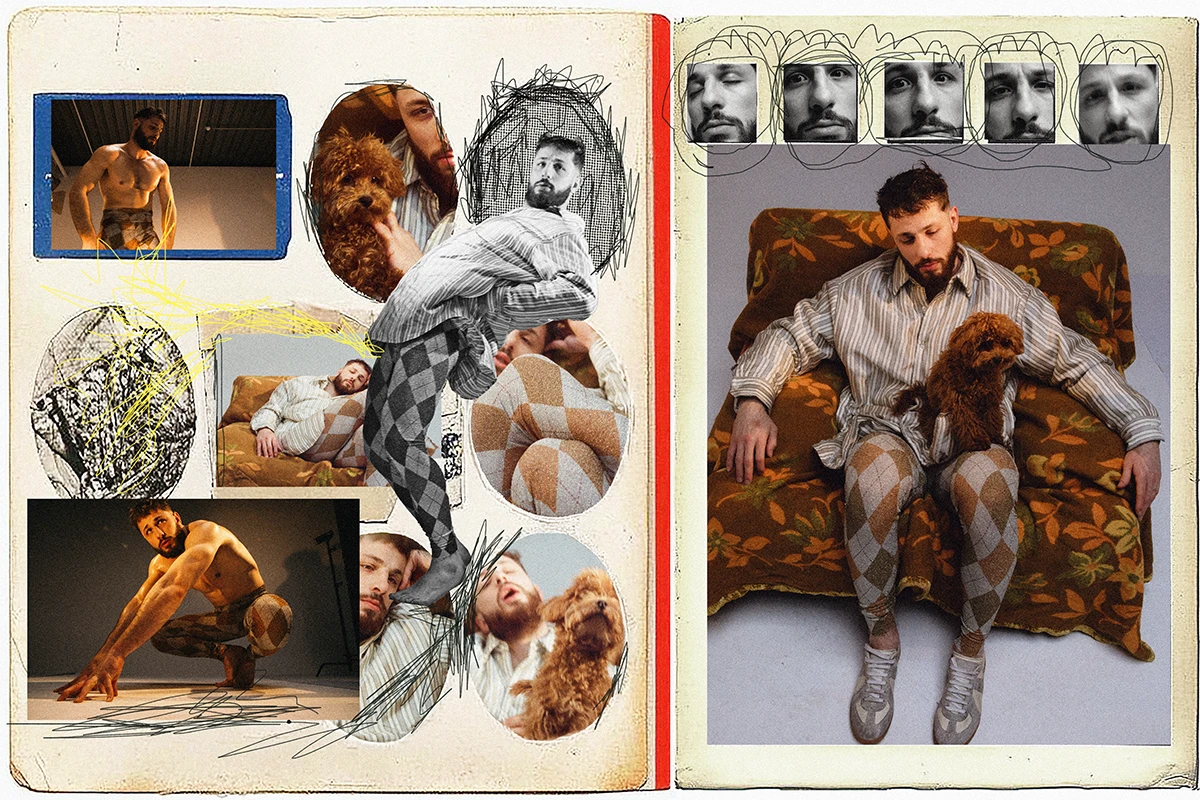
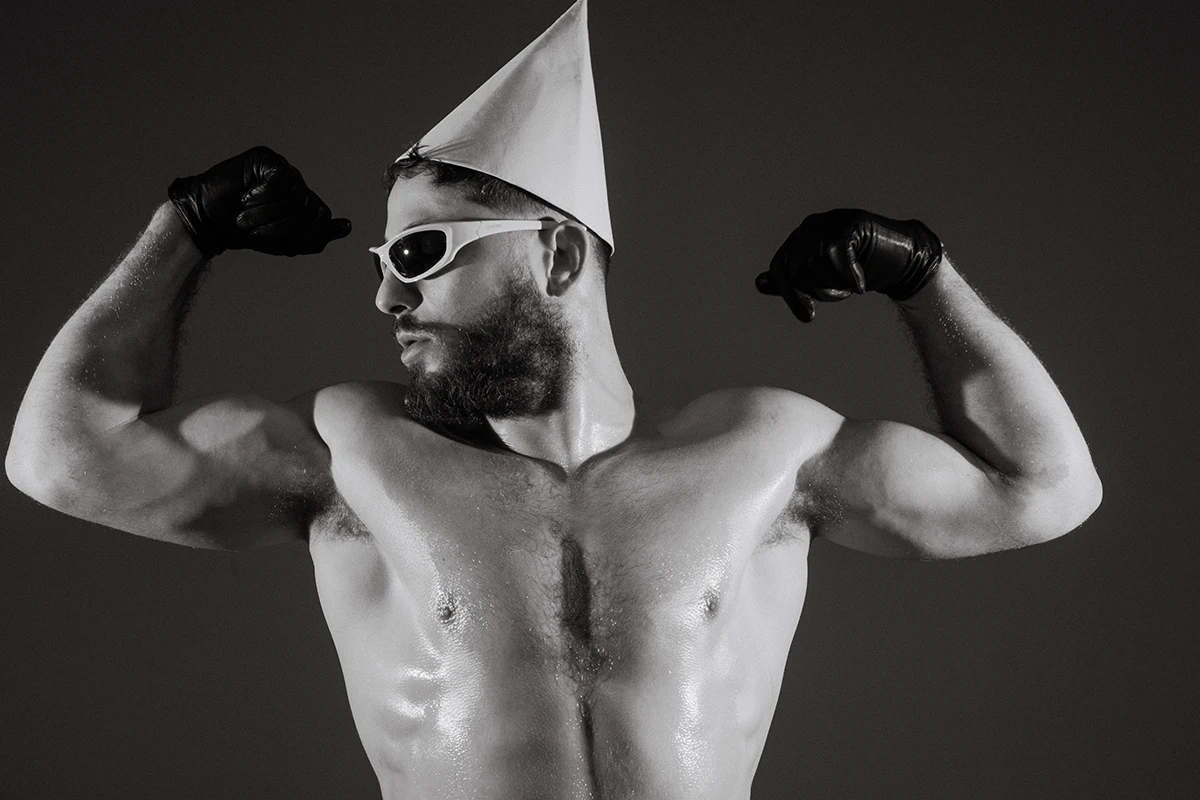
Escaping the Cage: MMA Star Mathis Chevalier Reinvents Himself Amid the Electric Pulse of Paris Queer Nightlife
Mathis Chevalier isn’t competing anymore, although he’s still training. He says he misses it, but “what started out as a liberation turned into a prison”. Again, a strive for a new form of independence kicked in. “When you have anger to release, when you’re trying to prove you’re the strongest, everything makes sense. When you get past that phase and start feeling better about yourself, things change. I’d say the next level is self-assertion. It’s not about asserting your difference or being different. I found it a bit complicated to be flamboyant in the environment I was in; I have a certain taste for original clothes, or things that not everyone likes. This was noticeable. I wanted to discover other ways of thinking”. Out of the cage and into Paris’ queer nights.
Cinema became more than a passion and the MMA athlete turned into an actor, mostly self-taught: he cites Jean-Paul Belmondo and Nicolas Maury as role models in the industry. At an exhibition about men’s secret encounters in public restrooms in the Twentieth century, he met with photographer and visual artist Marc Martin, who after a few years ended up offering him a role in Mon RCS.
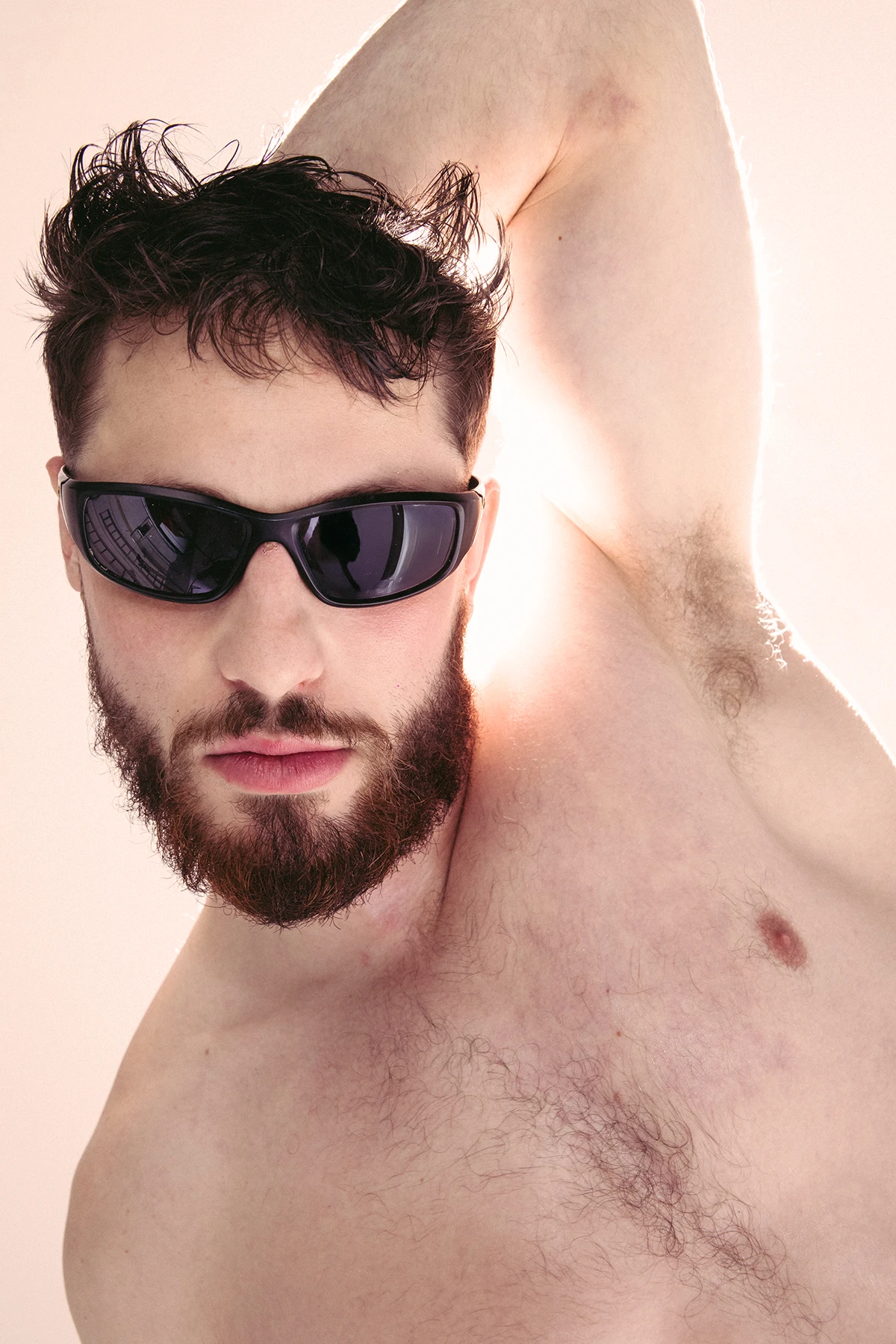
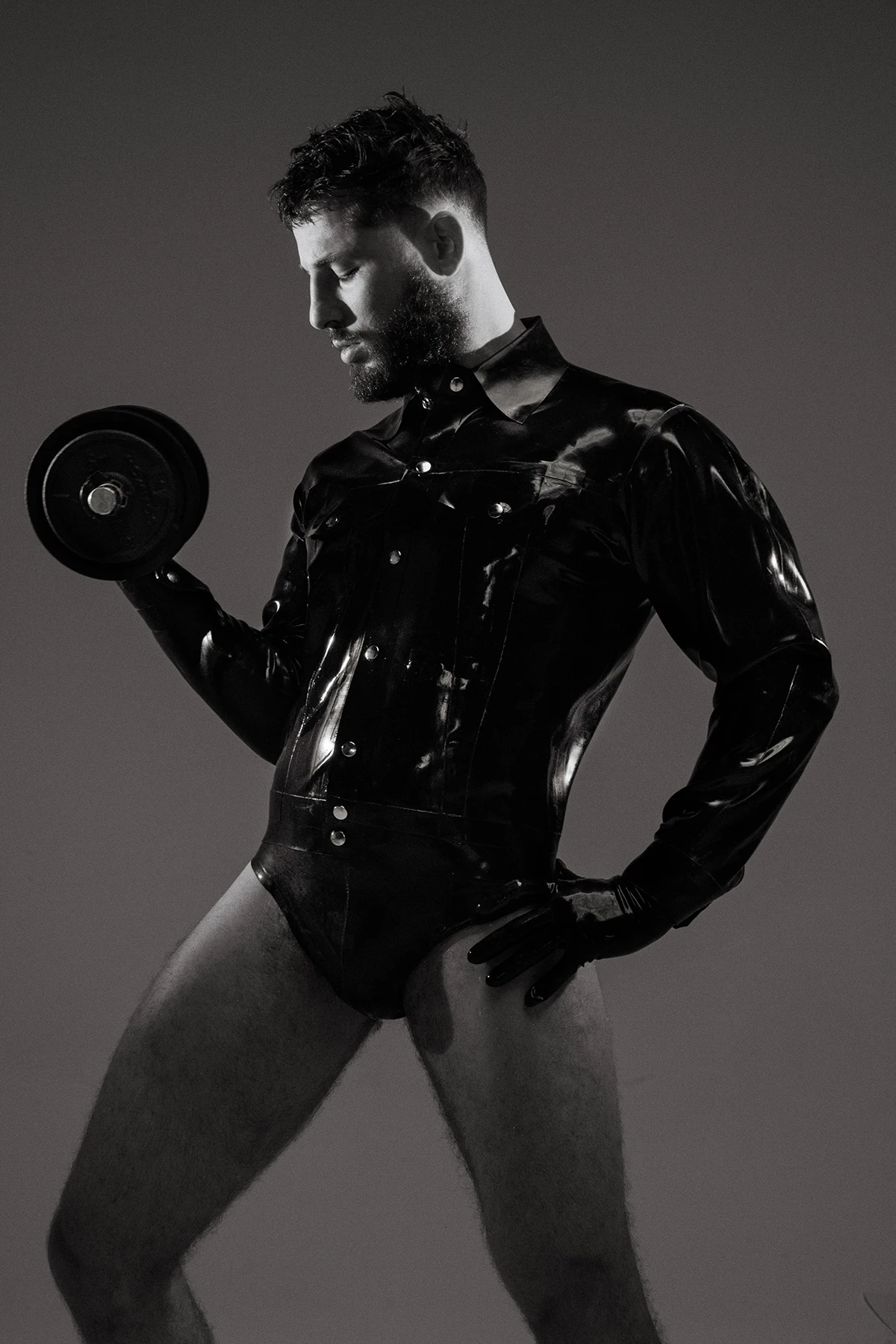
Being a fighter means constantly performing strength, presenting yourself as tough
“The tricky thing is that I was asked to play a role that broke away from the hyper-masculine image of a cop or a fighter. It was a journey of self-exploration. Being a fighter means constantly performing strength, presenting yourself as tough. When you step into a role, you must be able to show vulnerability, uncertainty and tenderness with your scene partner. It was destabilizing and shook me a bit. But it also did me good. It was something that played a part in my personal deconstruction”.
After Mon RCS, one of the projects he took on was a part in Best Secret Place, directed by Caroline Poggi and Jonathan Vinel. Mathis Chevalier cites them, along actor Erwan Kepoa and director Alexis Anglos, as French artists he’d like to see thrive. He won’t say what his next projects are but specifies that he will only accept stories with a meaning. “A boxer with an ambiguous sexuality would be interesting. Unfortunately, I only get cast as super-stereotyped cops. It’s frustrating”. Even as a viewer, he feels unsatisfied. “On Netflix we always see the same things. A lot of stories portrayed aren’t even real. I want to see the gritty, the unbearable. I want to see real life!”
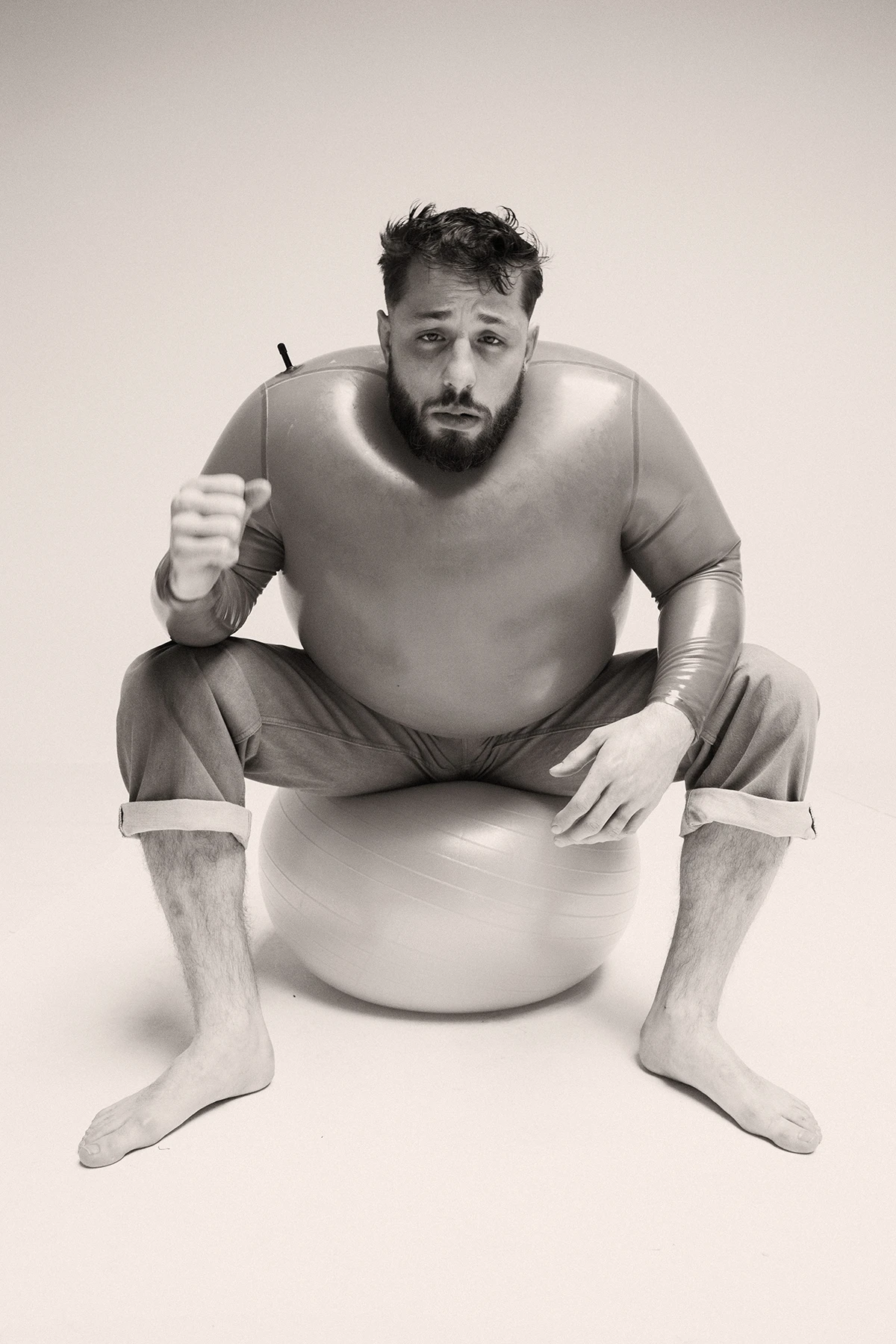
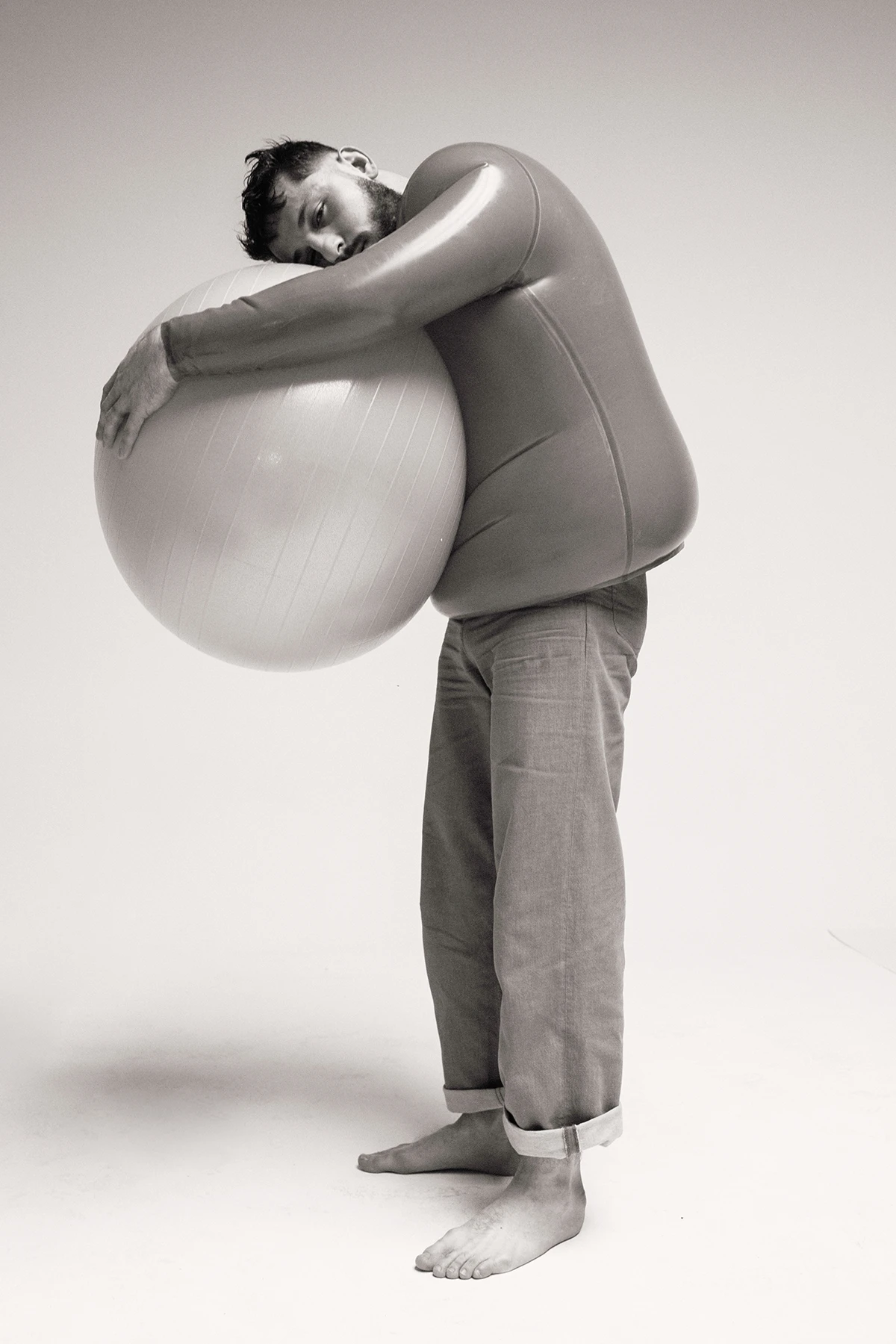
Calling Out French “Fachos”: Chevalier’s Unapologetic Stand Against Far-Right Extremism, Homophobia and Toxic Machismo
Movies aside, Mathis Chevalier says the internal frustration of his early youth is partly gone. It has shifted into something different. “Up until a while ago I was living in my bubble and everything felt safe. Now I get angry when I think about what’s going on in the world. Homophobia, political extremes. Seeing that it hasn’t changed, but many people haven’t, makes me angry. The frustration is still there, but it’s no longer directed at myself – it’s against these social structures. It still hurts”.
He talks about “fachos” and vocally expresses his disappointment. He mentions Mark Zuckerberg and his comments about the “desexualization” of our society, but also Dana White – Ultimate Fighting Championship president – and his support for American president Donald Trump. “There’s a link between extreme right movements and machismo. I think it’s more evident in the United States, but it’s also happening in France. There are people in the movie industry that see themselves as cinephiles but they’re getting closer to right extremists”.
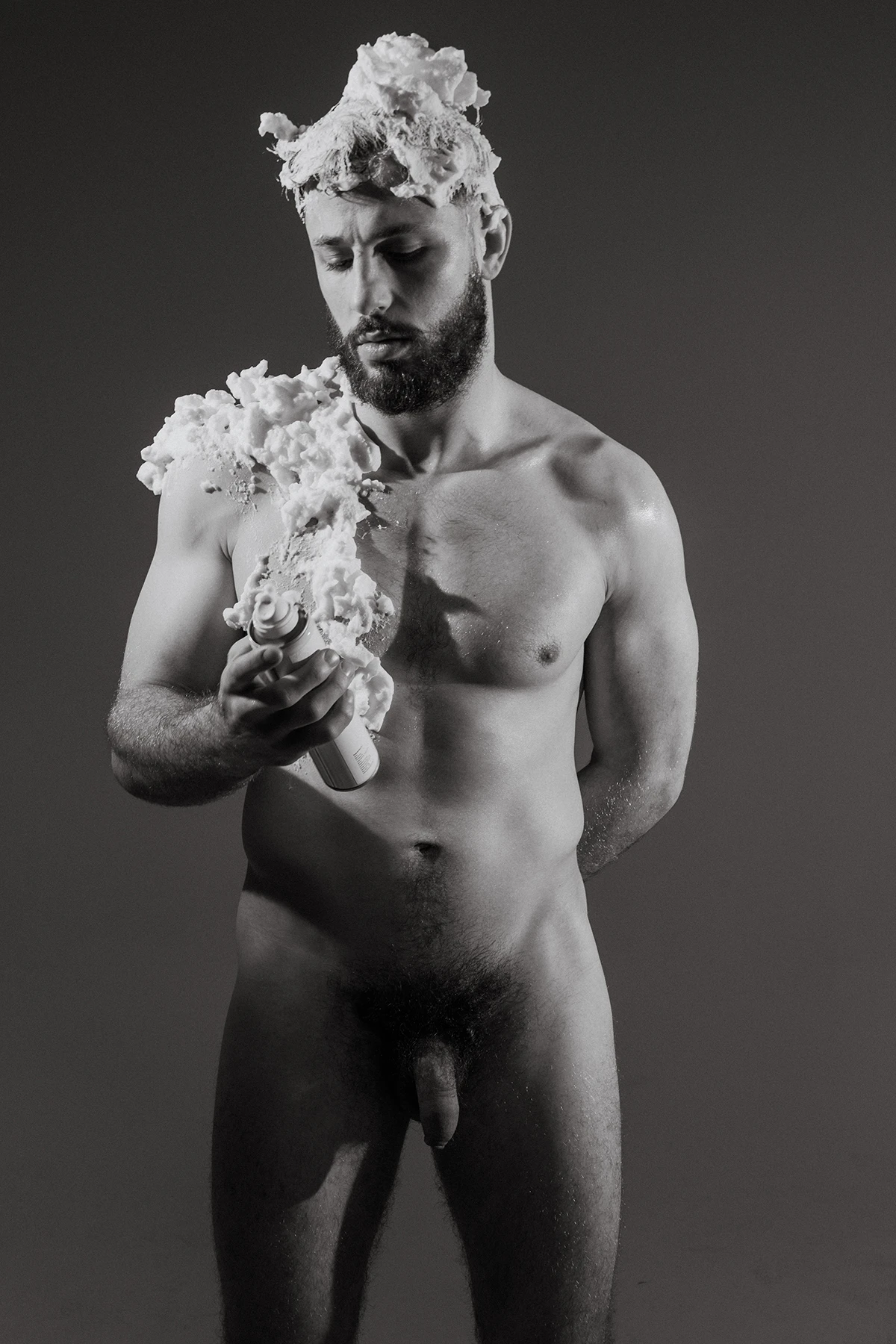
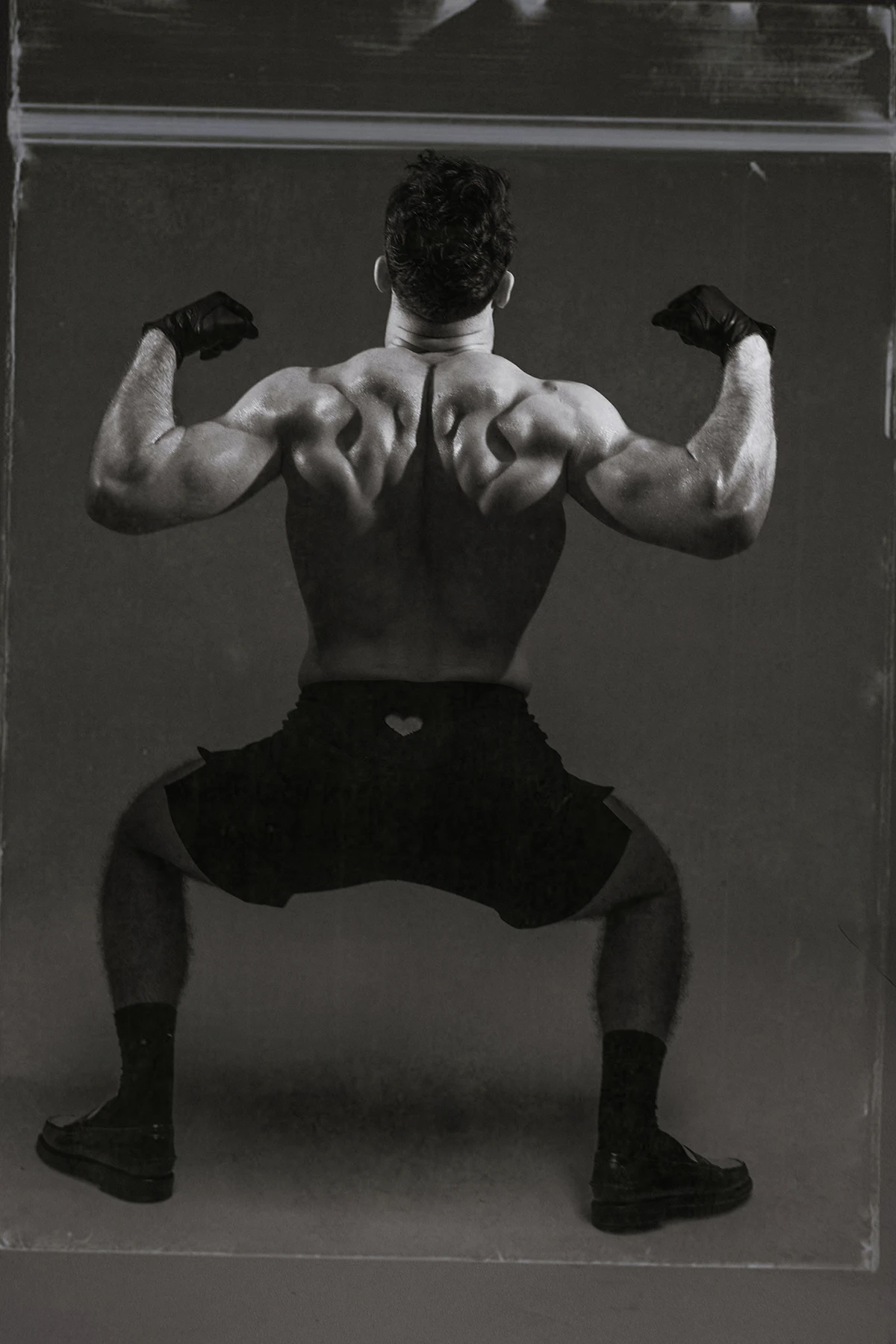
Staying Left in a Right-Wing Surge: Why Mathis Chevalier Says Progressive Politics Demand Relentless Self-Reflection and Courage
Last summer, politically speaking, France was in the eye of the storm. For a minute it seemed that Marine Le Pen’s Rassemblement National could lead the government. Italy already has Giorgia Meloni. The USA are back to Trump and many other countries are experiencing similar shifts. Why are right-wing parties becoming more and more successful?
“It’s harder to be left-wing because it requires questioning yourself, changing your habits, your consumption. The far left sometimes points fingers at those who resist change because there’s an urgent social and climate crisis. Meanwhile, the far right uses a unifying narrative – they say ‘We understand you’ – and rally people against a common enemy, whether it’s immigrants, same-sex marriage, or something else. It’s easier to unite against something than to open to others and reflect on yourself”.
A few years ago, when he was still competing as a fighter, Mathis Chevalier tried to sneak into politic to change things. “There was a center-right party that was close to being elected locally. I had left-wing ideas, and I thought that by joining that group, I could push forward leftist values. I had the ambition to create projects for young people, to promote artistic exchanges in the city”. It didn’t work out. He turned to art.
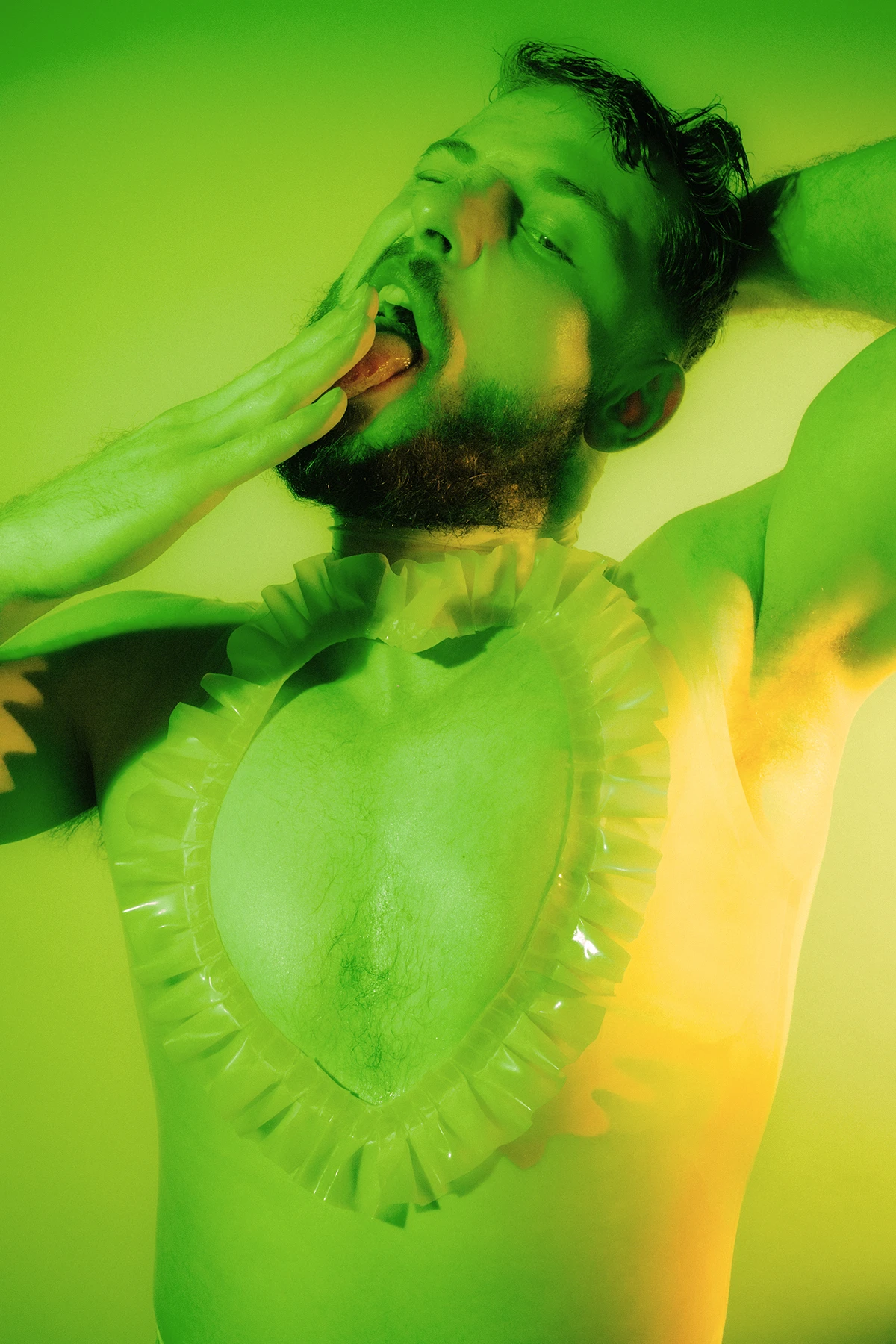
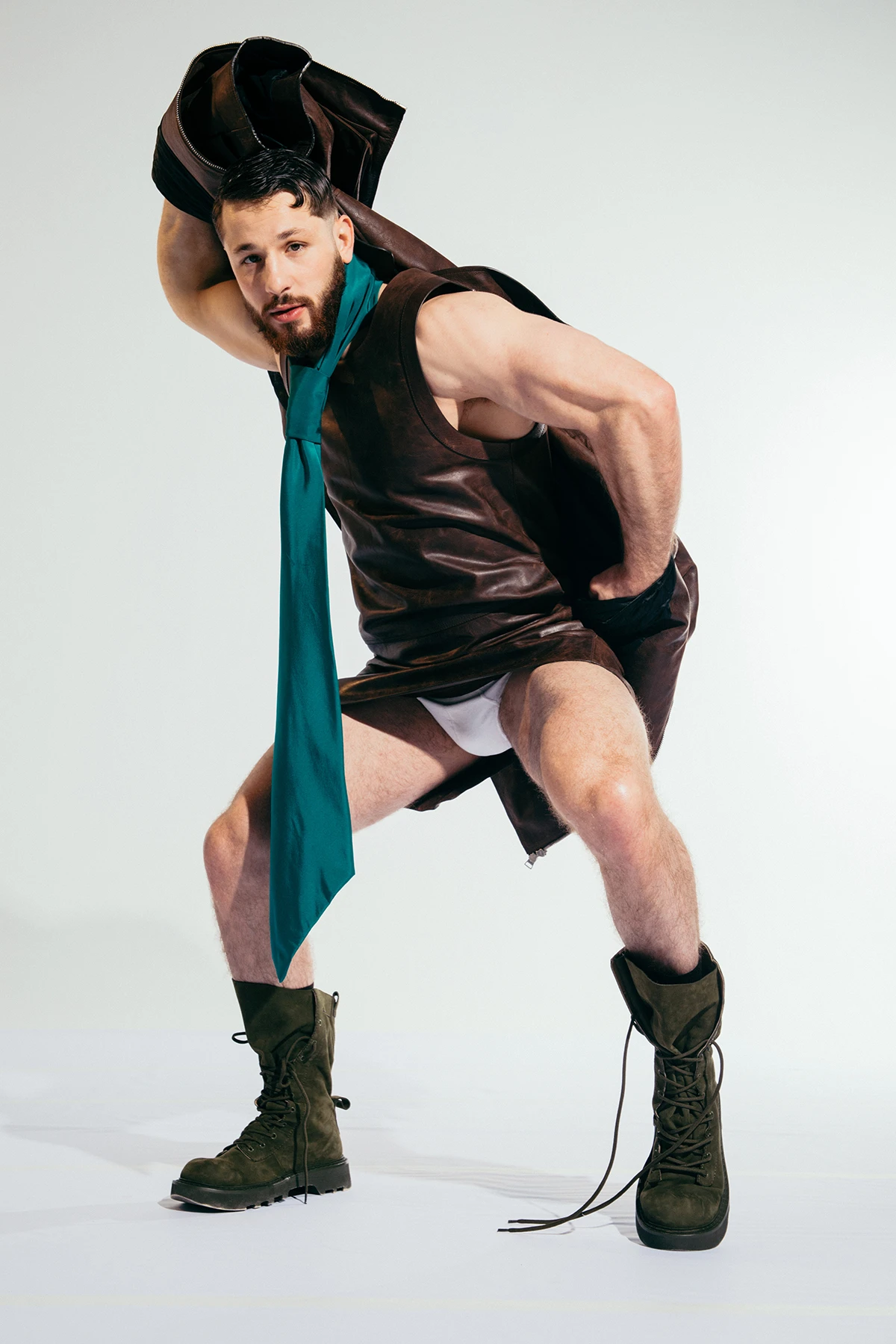
Stripping Down Toxic Masculinity: How Mathis Chevalier’s Male Nudity and Photobook “Tomber de nu(e)s” Shatter Outdated Stereotypes
A vehicle that Mathis Chevalier uses to “upset and unsettle” conservative people is his naked body. After Mon RCS, his artistic alliance with Marc Martin grew stronger with Tomber de nu(e)s, a photobook aimed at challenging the prevailing prudery. It’s a reflection on toxic masculinity and how to destroy it, combining innuendos to gay lust and to machismo: some of the pictures are shot in a gym shower, for example. A bold statement from someone who comes from MMA.
“Being an athlete or a fighter is fairly easy. I have good genetics, a good body and I’m straight. It would be very easy for me to just be complacent with this situation. Taking responsibility and going against the tide takes more courage. Choosing a different path from the majority exposes you to criticism, insults, even death threats. It also means confronting the weight of prejudice, labels, and encounters with people who want to attack you. In the end, the issue of homophobia concerns all of us, just like racism does. And so, if you don’t take part in the discussion, it means you’re passively accepting it – it means you’re endorsing it”.
“I guess my parents see me as an alien, someone who has transitioned from ultra-violence to queer rights’ defense. I had a picture of myself with an erection displayed in a gallery and I wasn’t sure I wanted my mom to see it. She told me that she was happy to see her son being bold enough to do something she couldn’t do at my age, because of social obligations.”
Giacomo Cadeddu
